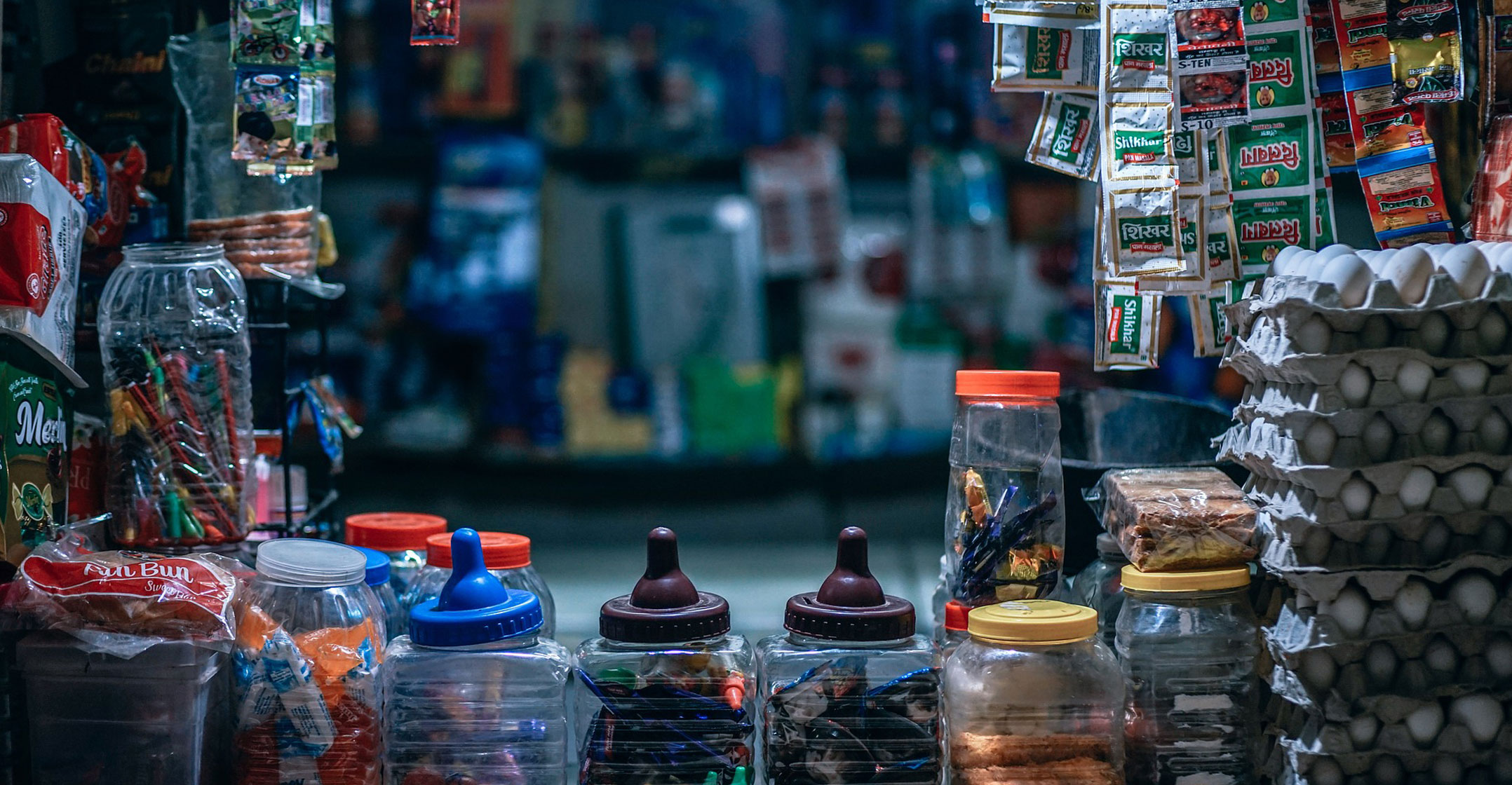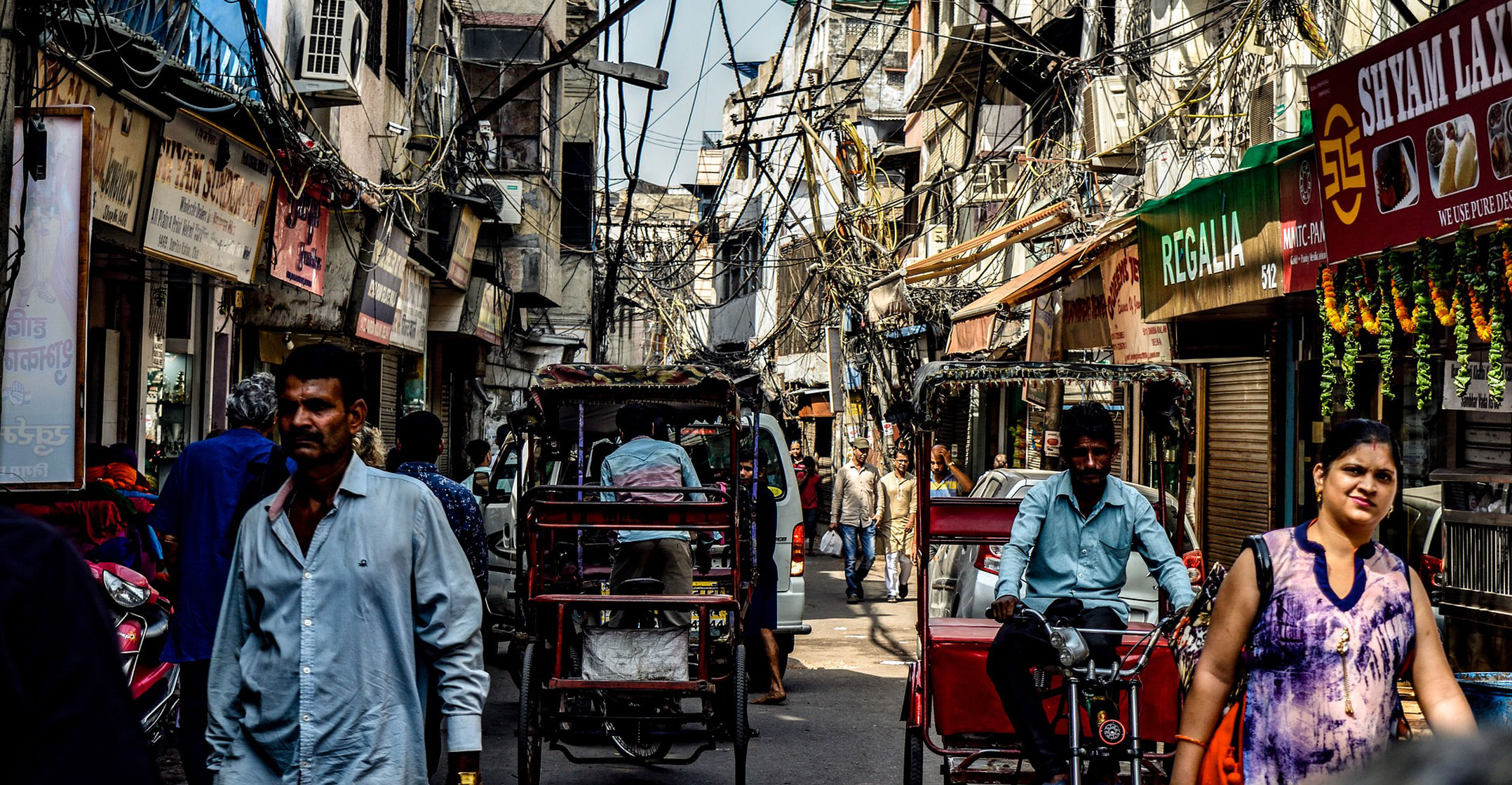 In the heart of New Delhi’s largest wholesale bazaar, merchants who normally compete with each other have united against a common enemy.
In the heart of New Delhi’s largest wholesale bazaar, merchants who normally compete with each other have united against a common enemy.
“Amazon, Flipkart!” one merchant after another shouts into a microphone from a small stage in Sadar Bazaar’s central traffic circle. Some 50 other shopkeepers gathered around shout back in unison: “Go back! Go back!”
The sit-in, which created more chaos than usual among the rickshaws, motorbikes and ox-carts plying the market road, was one of as many as 700 protests against Amazon.com and Walmart — owner of local e-commerce leader Flipkart — that organisers say took place at bazaars across India on a recent Wednesday.
India’s shopkeepers are mobilising against the global e-commerce giants, alleging they are engaged in predatory pricing in violation of new rules meant to protect local businesses. At stake is the future of retailing in a country with 1.3 billion consumers, where Walmart and Amazon have sunk billions of dollars trying the crack the market and capture its growth potential.
“Amazon and Flipkart are a second version of the East India company,” said Praveen Khandelwal, national secretary of the Confederation of All India Traders at the Delhi protest, referring to the British trading house whose arrival in India kicked off nearly 200 years of colonial rule. “The motive of Amazon and Flipkart is not to do business, but to monopolise and control.”
India’s government in October announced an investigation into the allegations of predatory pricing. Amazon and Walmart said in statements last week that their operations comply with Indian laws, and that they act only as a third-party marketplace.
Backlash
The conflict comes amid a broader global backlash against the breakneck expansion of tech firms — from protests by taxi drivers against an Uber clone in Jakarta, to couriers for a Softbank-backed delivery start-up creating a bonfire of their backpacks in Bogota in protest of low wages and poor benefits.
Representing about 70 million small merchants who collectively control almost 90% of India’s retail trade, India’s shopkeepers union has shown itself to be a strong political force. The traders are an important part of the voter base of Prime Minister Narendra Modi’s Bharatiya Janata Party.
“For a government, especially a government of the BJP, which has the support of small businessmen, it may not be prudent or politically advisable to totally ignore such demands,” said Sandeep Shastri, a political scientist at Jain University in Bangalore. “They would have to be seen taking some steps at least.”
 The union’s power is a significant reason the government has placed such onerous restrictions on foreign retailers — including a minimum US$100-million investment and strict local sourcing rules. Because of the hurdles, the likes of Walmart and Carrefour have all but given up on opening their eponymous stores in the country.
The union’s power is a significant reason the government has placed such onerous restrictions on foreign retailers — including a minimum US$100-million investment and strict local sourcing rules. Because of the hurdles, the likes of Walmart and Carrefour have all but given up on opening their eponymous stores in the country.
The shopkeepers won a key victory against the foreign e-commerce players last year when the government tightened regulations on how the platforms are allowed to sell goods. The rules, aimed at creating a level playing field on pricing, forced Amazon and Flipkart to pull thousands of items from their virtual shelves and restructure large parts of their local operations.
The changes, coming after Walmart announced its acquisition of Flipkart, threw the foreign companies into chaos and prompted analysts to question their India investments. With Amazon shut out of China and Walmart’s e-commerce performance in the US decidedly mixed, both companies have settled on India as key to growth. Amazon CEO Jeff Bezos has pledged to spend $5.5-billion to win India, while Walmart’s $16-billion Flipkart deal was the retailer’s biggest ever.
Now the shopkeepers are alleging Amazon and Flipkart are circumventing the rules with predatory pricing and deep discounting. They are demanding the government shut down the companies’ online marketplaces until they are in compliance.
Amazon said its sellers have complete discretion on what price to sell their products. Flipkart said it provides sellers with data to help determine what product offerings will sell best at what price, but business decisions are ultimately the sellers’ to make.
The flash point for the latest escalation was Diwali, a Hindu festival that’s occasion for a gift-giving bonanza akin to Christmas in Western countries. This year’s festival in October came amid a slowdown in consumer spending that’s hit everyone from car makers to shampoo sellers. But while the shopkeepers union said its members saw as much as a 60% drop in Diwali sales, Amazon and Flipkart managed to report record revenue from the six-day festival.
‘Violation’
The shopkeepers union argued that the online holiday deals must be in violation of the new rules, prompting commerce minister Piyush Goyal to announce an investigation.
“E-commerce companies have no right to offer discounts or adopt predatory prices,” Goyal said in October. “Selling products cheaper and resulting the retail sector to incur losses is not allowed.” Another government official said policy makers are looking at setting up a dedicated e-commerce regulator.
A spokesman for the commerce and industry ministry didn’t respond to an e-mail seeking comment.
Vinod Kumar, a 35-year-old shopkeeper selling women’s cosmetics in the Delhi bazaar, is looking for relief. Standing by his small stall, he picks up a bottle of a rosewater-based hair product. He sells it for 40 rupees (US$0.56), but says customers can get it from Amazon or Flipkart for 30 rupees, with delivery right to their home.
 “If everything is available online, why would anyone come here to face the heat and the crowds?” he says. “My business is shrinking by the day.”
“If everything is available online, why would anyone come here to face the heat and the crowds?” he says. “My business is shrinking by the day.”
Kumar says if the situation continues he may go out of business, as many other shops already have.
Overall data show sales at traditional mom-and-pop shops are still growing in India. Though these stores have seen a decline in their share of total retail sales since 2014 as e-commerce and organised retail chains grab market share, the consumer market is expanding at such a pace that absolute spending with mom-and-pop shops increased nearly 60%, according to consultancy Technopak Advisors. That pace of absolute growth is projected to slow slightly to 50% over the next five years.
That may be cold comfort to Muhammad Yusuf. The 72-year-old, who runs a jewellery shop at the Delhi bazaar, says he’s unable to match the prices online, has cut his staff from six employees to two and is in danger of not being able to pay rent.
Yusuf is conspicuous in the e-commerce protest, however, in that he’s sporting a fleece jacket bearing the Amazon logo. Asked why he’s wearing it, he shrugs and says he needed something to keep him warm and found it in a clothing stall nearby. He bought it because it was cheap. — Reported by Ari Altstedter, with assistance from Shruti Srivastava, (c) 2019 Bloomberg LP

